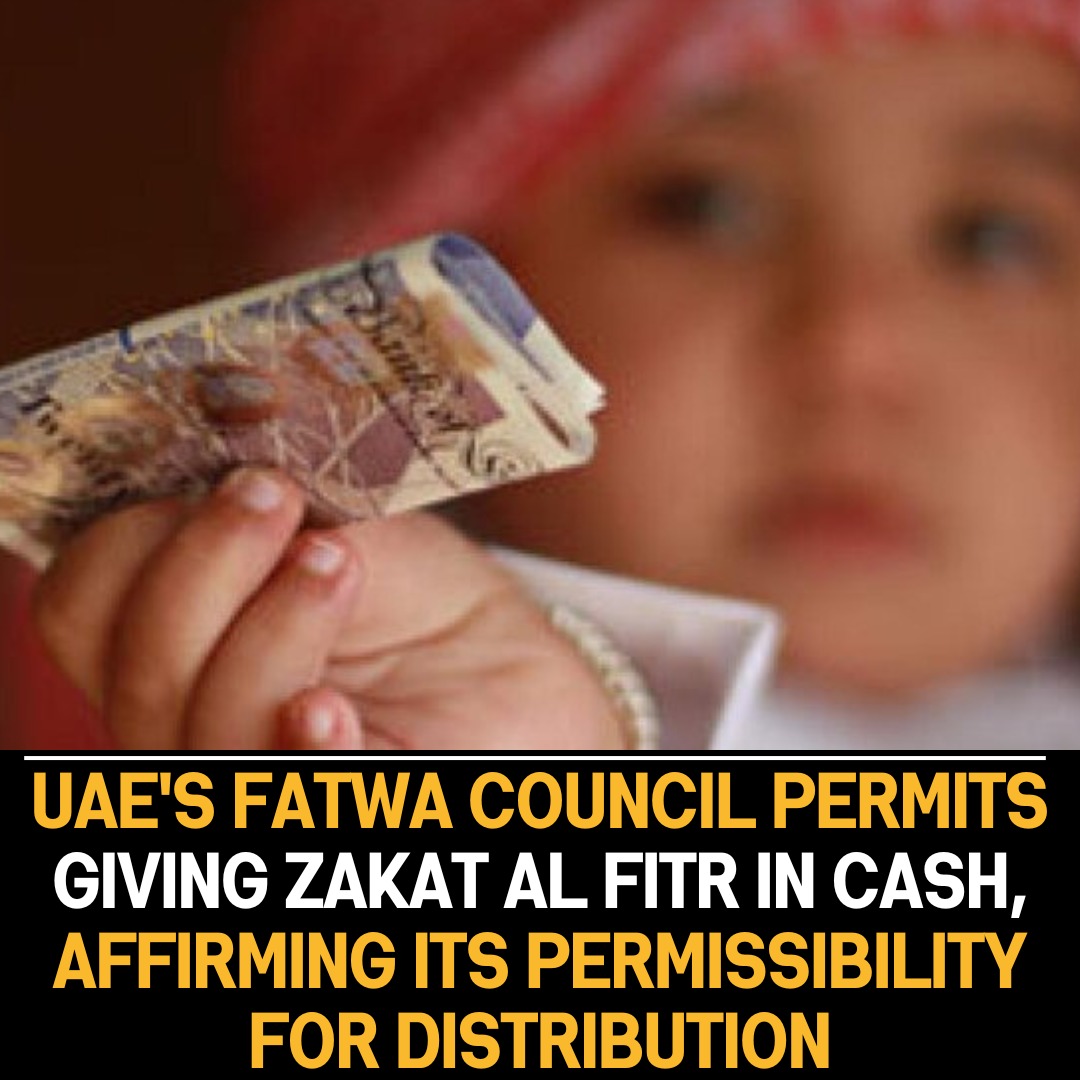The recent decision by the United Arab Emirates (UAE)’s Fatwa Council to permit the giving of Zakat Al Fitr as cash represents a significant development in Islamic philanthropy and social welfare practices. Zakat Al Fitr, also known as “Fitrana,” is a mandatory charitable contribution that Muslims are required to give at the conclusion of the fasting month of Ramadan. Traditionally, Zakat Al Fitr has been given in the form of staple food items, such as wheat, barley, dates, or raisins, to ensure that those in need have enough to celebrate Eid al-Fitr, the festival marking the end of Ramadan, with dignity and sufficiency.
The Fatwa Council’s decision to allow Zakat Al Fitr to be given as cash acknowledges the changing socio-economic landscape and the practical challenges faced by individuals and communities in fulfilling their religious obligations. By permitting cash donations, the Council recognizes the importance of flexibility and adaptability in fulfilling the principles of Zakat, which emphasize meeting the needs of the less fortunate and ensuring their well-being.
The decision also underscores the broader shift towards modernization and innovation in Islamic finance and charitable practices. In today’s interconnected world, cash transfers offer a more efficient and accessible means of distributing aid, allowing for greater transparency, accountability, and scalability in charitable initiatives. Cash donations enable beneficiaries to have greater autonomy and choice in meeting their immediate needs, whether it be food, clothing, shelter, or other essentials, thereby fostering dignity and empowerment.
Moreover, allowing Zakat Al Fitr to be given as cash facilitates the participation of a wider range of donors, including those living in urban areas or non-agricultural communities where access to staple food items may be limited. It also enables individuals to contribute to charitable causes regardless of geographical barriers or logistical constraints, thereby promoting inclusivity and community engagement in philanthropic efforts.
However, while the decision to permit cash donations for Zakat Al Fitr offers numerous benefits, it also raises important considerations regarding the implementation and oversight of such initiatives. Ensuring that cash donations are distributed effectively and equitably to deserving recipients requires robust governance mechanisms, transparent accounting practices, and collaboration between religious authorities, charitable organizations, and government agencies.
In conclusion, the Fatwa Council’s decision to allow giving Zakat Al Fitr as cash reflects a progressive approach to Islamic philanthropy that balances tradition with contemporary realities. By embracing innovation and flexibility, the UAE demonstrates its commitment to upholding the principles of charity, compassion, and social justice in addressing the needs of vulnerable individuals and communities during the auspicious occasion of Eid al-Fitr.









